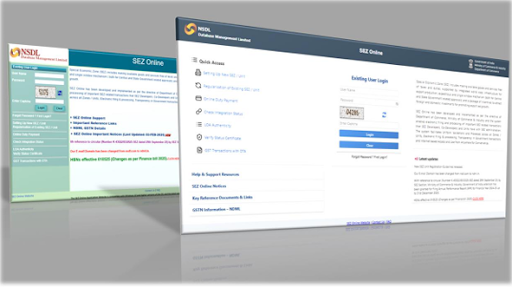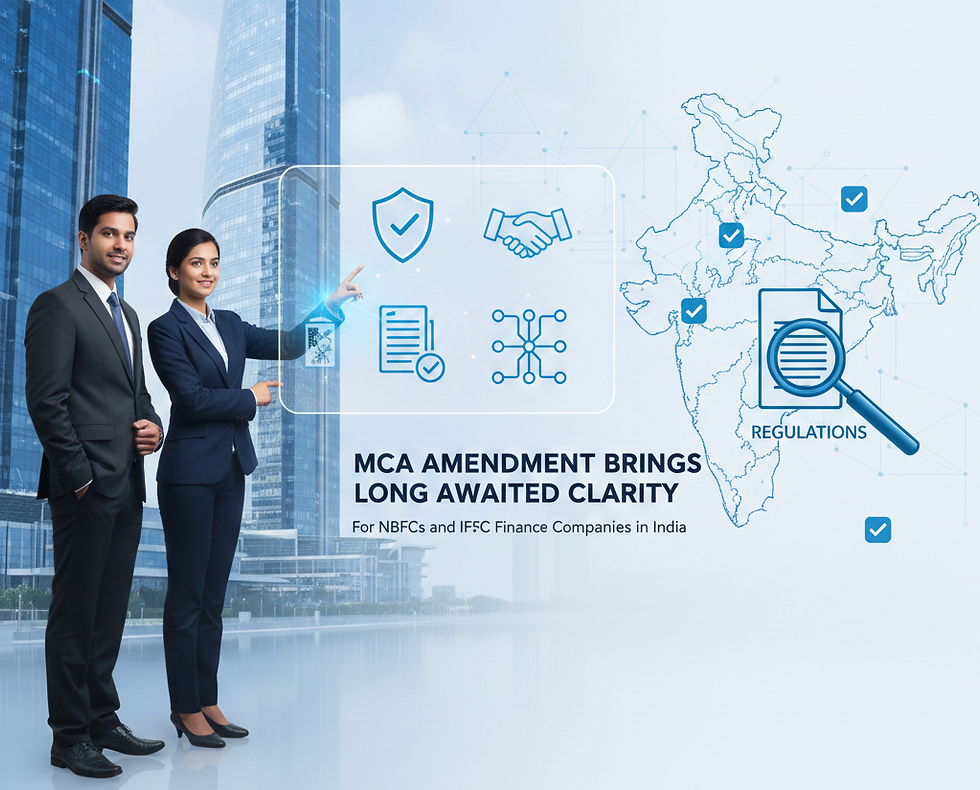Informal Guidance on Distributor Eligibility and Dual Registration in GIFT IFSC
- GIFT CFO
- Aug 22
- 4 min read
Updated: Sep 12
The International Financial Services Centres Authority (IFSCA) recently issued an informal guidance letter on August 20, 2025. This letter responded to an application from LGT Wealth India Private Limited (IFSC Branch) regarding the distribution of capital market products. This interpretative response provides essential clarity on the regulatory framework for distributors in GIFT IFSC. It also highlights the potential for Fund Management Entities (FMEs) to assume dual roles.
Background
Applicant: LGT Wealth India Pvt Ltd is a SEBI-registered Portfolio Manager and Distributor (AMFI/APMI). Their IFSC branch is registered as a Non-Retail Fund Management Entity (FME) and sought informal guidance on distribution.
Queries Raised:
1. Can their Mumbai Head Office distribute IFSCA-registered financial products (funds launched by GIFT City entities)?
2. Can their Non-Retail FME in IFSC apply for separate Distributor registration under the IFSCA (Capital Market Intermediaries) Regulations, 2025?
IFSCA’s Key Responses on Informal Guidance on Distributor
1. Distribution from Non-GIFT City Office
IFSCA referred to Para 8.3 of its Master Circular for Distributors in IFSC (Aug 5, 2025).
Entities outside IFSC may distribute products offered by IFSC-regulated issuers if they comply with the distributor’s Code of Conduct under Schedule II of the Capital Market Intermediaries Regulations, 2025.
LGT’s Mumbai office can distribute IFSC products subject to strict compliance and ensuring that conflict of interest policies are in place.
Implication: Domestic entities with SEBI/AMFI registration can extend their distribution reach to IFSC products. However, compliance safeguards are critical.
2. Separate Distributor Registration for FME (Non-Retail)
IFSCA clarified that:
An FME may apply for separate Distributor registration in IFSC.
Approval will be subject to conditions ensuring adequate conflict management.
Indicative conditions include:
Manpower segregation between fund management and distribution functions.
Separation of systems, processes, bank accounts, and records.
A board-approved conflict of interest policy to ensure client interests are not compromised.
Implication: Dual registration is possible but only with clear structural and operational separations.
Why This Matters
Regulatory Clarity for Global Players: The guidance provides certainty to international and domestic financial institutions exploring dual roles in GIFT City.
Enabling Cross-Border Distribution: By allowing Mumbai-based SEBI-registered distributors to market IFSC products, IFSCA has strengthened integration between onshore and offshore markets.
Robust Conflict Management: Conditions for dual registration highlight IFSCA’s focus on investor protection and governance.
Opportunities for Market Expansion: Asset managers, wealth managers, and distributors can now design wider product distribution strategies using both IFSC and domestic channels.
Exploring GIFT City Opportunities
GIFT City is rapidly emerging as a global financial hub. It offers numerous opportunities for businesses and investors. The recent guidance from IFSCA is a testament to the growing importance of this financial center.
Understanding GIFT City
GIFT City stands for Gujarat International Finance Tec-City. It is designed to cater to the financial services sector. The city aims to attract global investors and financial institutions. With its unique regulatory framework, GIFT City provides a conducive environment for businesses to thrive.
Entity Setup and Compliance in GIFT IFSC
Setting up an entity in GIFT IFSC involves several steps. First, businesses must understand the regulatory requirements. This includes obtaining necessary licenses and registrations. Compliance is crucial for smooth operations. The guidance from IFSCA simplifies this process for potential investors.
Fundraising Options in GIFT City
GIFT City offers various fundraising options. These include External Commercial Borrowings (ECB), Special Purpose Acquisition Companies (SPACs), bonds, and Alternative Investment Funds (AIFs). Each option has its advantages and regulatory considerations. Understanding these options can help businesses make informed decisions.
Global Investment Structuring via GIFT
Investors looking to structure their investments globally can benefit from GIFT City. The city provides a strategic location for international operations. It allows for efficient cross-border transactions and compliance with global standards. This makes GIFT City an attractive destination for global investors.
Thought Leadership on IFSCA, SEZ, and Financial Reforms
The IFSCA plays a pivotal role in shaping the regulatory landscape of GIFT City. Its guidance and reforms are essential for fostering a robust financial ecosystem. Staying informed about these developments is crucial for businesses operating in or entering GIFT City.
Conclusion
The IFSCA’s informal guidance to LGT Wealth India marks a significant step in strengthening the distribution framework in GIFT IFSC. By clarifying the eligibility of non-IFSC entities and laying down conditions for FMEs seeking distributor roles, the regulator has enhanced regulatory certainty, governance standards, and business opportunities.
As GIFT City grows into a global financial hub, such interpretative clarifications will play a pivotal role in shaping the compliance landscape for intermediaries.
If you're interested in exploring the opportunities that GIFT City offers, consider reaching out.
Book a 1:1 call to explore GIFT City.
Disclaimer: This article is for general informational purposes only and is based on the International Financial Services Centres Authority (IFSCA) Informal Guidance Scheme, 2024, and the interpretive letter dated August 20, 2025, issued to LGT Wealth India Pvt Ltd. The guidance represents the views of the concerned department of IFSCA and is not binding on the Authority, nor does it constitute a conclusive decision, determination of law, or regulatory approval. Different facts, circumstances, or subsequent regulatory changes may lead to a different interpretation. Readers are advised not to treat this as professional advice and should consult qualified professionals or approach IFSCA directly for specific business or compliance decisions.


























































































Comments